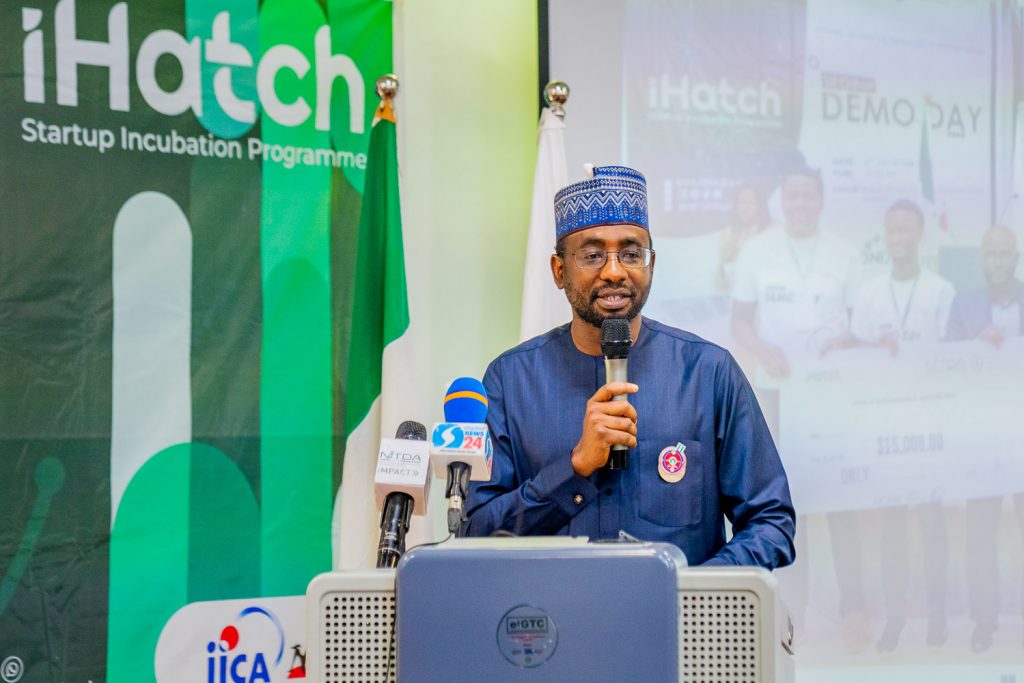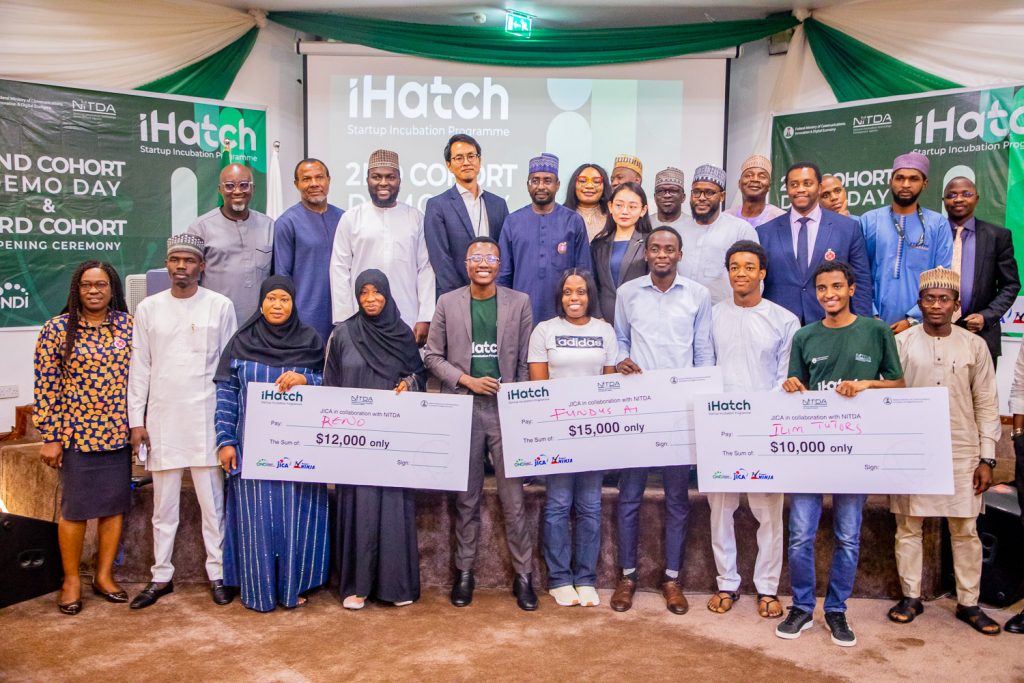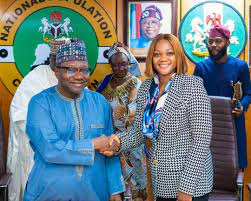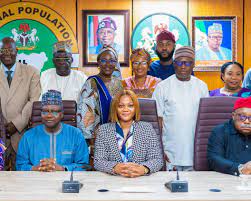Opinion
ANALYSIS: Suspension Of CJN Onnoghen: An Illegal Executive Coup Against A Recalcitrant Chief Judicial Officer By Jiti Ogunye
Published
5 years agoon
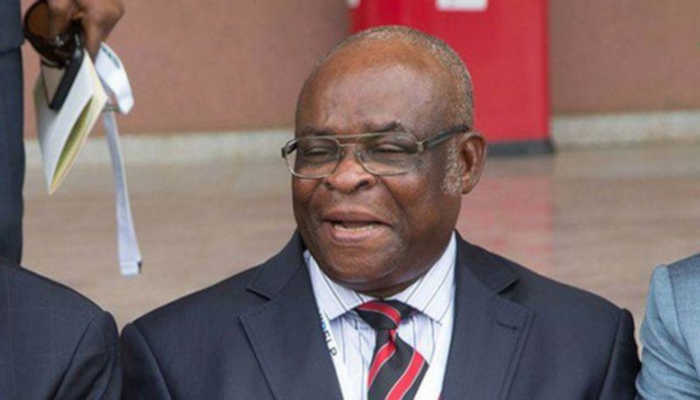
Eniola Olayemi
On Friday, January 25, 2019, the President of Nigeria , Muhammadu Buhari, suspended the Chief Justice of Nigeria, Justice Walter Nkannu Samuel Onnoghen from office, and immediately administered the judicial oath of office to the most senior Supreme Court Justice , next in rank to him, Justice Ibrahim Tanko Muhammed as the Acting Chief Justice of Nigeria.
Following that act, the president delivered a 25-paragraph address, akin to a coup speech, wherein he gave reasons for his action.
Essentially, the president explained that he was swiftly executing an order ex-parte ( that is, a one sided order procured without notice to, and the knowledge of the “suspended” CJN or his lawyers) of the Code of Conduct Tribunal (CCT), made and dated the 23rd day of January, 2019.
The order mandated him to suspend the CJN from office, pending the final determination of his trial at the CCT, and swear in the Justice of the Supreme Court next to him in rank, as an acting CJN.
The president further explained that sequel to the filing of corruption related charges against the CJN by the Code of Conduct Bureau (CCB) before the CCT and the commencement of his “trial “for gross violations of the provisions of the Code of Conduct for public officers, as stipulated in the Constitution of Nigeria, the CJN, instead of resigning his position took steps to frustrate his trial.
The CJN had been accused in the charges of receiving into and retaining in many banks accounts huge sums of money in foreign and local currencies, without disclosing them in his asset declaration forms and documents submitted to the CCB.
Unusual Speed
On January 7, 2019, the CCB received the petition against the CJN and between that date and 14th January, 2919, treated the petition and filed charges against the CJN, leading to his expected arraignment.
Many were shocked by the speed of that process, making many to wonder whether that speed did not signify that the FGN was coordinating the plot to remove the CJN from office.
The publicised demand of the Federal Executive Branch of Government for the resignation of the CJN from office , and the hollow and flat statement made by Vice President, claiming the President was not aware of the travail of the CJN before he was charged were pointers that the Buhari Administration was the resolute and implacable force behind the effort to remove the CJN from office.
When the CJN was confronted with the particulars of his infractions, upon the receipt of a petition from an NGO that submitted same, calling for his probe and prosecution, he made a ‘confession’.
In a a written statement that he volunteered, he admitted the ownership of the bank accounts and the sums therein contained, but claimed that he forgot to declare the bank accounts.
In the face of these damning confession, the president stated that Nigerians had expected the CJN to resign his office.
But instead of doing that, a team of senior lawyers working with him had obtained a number of orders from the courts to frustrate his trial.
It was in consequence of these orders that the Executive had to act.
It sought an order to suspend the CJN from office and upon the order being granted by the CCT, acted swiftly to suspend the CJN from office.
Divided Public
As it has now become the pattern, public opinion on the action taken against the CJN by the president is sharply divided.
A section of the public is of the view that the president acted illegally and unconstitutionally. They cite the provisions of Section 292 of the Constitution, which guarantees security of tenure for judicial officers, especially the CJN.
By this, he cannot be suspended or removed from office without the recommendation of the NJC and the 2/3 concurring approval of the Senate.
The other section hails the action of the President, contending that it is premised on a valid and subsisting order of the CCT, which has not been set aside, and which is incumbent on the President to enforce.
This section of opinion believes that the action of the President addresses the substance of the allegation of corrupt practices against the CJN, the tackling of which is being frustrated by the resort to technicalities and procedural niceties of law, a slavish adherence to the labyrinth of the due process of law, and treading of the laborious path of the rule of law.
Informed View
Faced with the divided, nay partisan opinion on the matter, patriots, lovers of democracy, believers in the rule of law and abhorrers of corrupt practices in our public life must take an informed and well considered view on the far- reaching and unprecedented step the Executive Branch of Government has taken.
While isolated (and we say not pervasive) cases of corrupt practices in the judiciary must be combated assiduously by our anti-corruption agencies under the Executive Branch of Government, Nigerians must decry the procedure adopted by the Muhammadu Administration.
Because of wrong procedure, the suspension is patently illegal and unconstitutional. It is disingenuous for anyone to argue to the contrary.
The suspension, which the Administration argues emanates from an order of the CCT is no more than a premeditated executive act dressed up in a quasi judicial cloak to give it legitimacy.
It was akin to what the military regime of General Bademasi Babangida did while fishing for judicial pretexts to stop the holding of the June 12 1993 Presidential Election, and annul it altogether.
It used its proxies to procure orders of injunctions from Hon Justice Bassey Ikpeme and Hon. Justice Dahiru Saleh of the Abuja High Court to stop the holding of the election and when the election was held, to stop the counting and release of the results.
This was in spite of the fact that the decree guiding the transition to civil rule programme had prohibited the granting of such orders, which could truncate the conduct of the election!
And it is puerile to argue that the mode of suspending or removing the CJN from office, as clearly defined by the Constitution can be circumvented by reliance on the provisions of Section 11 of the Interpretation Act, Cap 123, Vol. 8, LFN, 2004, an inferior statute, compared to the Constitution, the Supreme Law of the land.
The act of the Buhari Executive cannot be justified by invoking the provision of the Interpretation Act.
The precedent of the unconstitutional and wicked ill treatment meted to Justice Isa Ayo Salami, erstwhile President of the Court of Appeal by the Goodluck Jonathan Presidency, cannot be used as justification.
Incidentally, the senior lawyers that colluded with the Goodluck Jonathan Administration then to traduce and harangue Hon. Justice Isa Ayo Salami, CFR, and cruelly and crudely abort his presidency of the Court of Appeal are now the in the CJN Onnoghen’s corner, mouthing “the rule of law“ , “due process of law” , “judicial independence“, and decrying an alleged descent into fascism.
Political Game Play
Apparently, the executive branch of the government desired the ouster of the CJN from office.
To actualise the objective, it worked closely with a shadowy NGO to dredge up CJN Onnoghen’s infractions of provisions of the Code of Conduct for Public Officers. Many of these infractions predated the appointment of Justice Onnoghen as the CJN in 2017.
But there was no political exigency then for the use of the discovered and known transgressions of the CJN. The motive for using the allegationsnow is the feared harm the judiciary that is presided over by the CJN could do to the political interests of the ruling party, especially regarding pre-election cases and election petitions.
The CJN is facing an indefensible and shameful allegation of corruption against him , an allegation which warrants that he resigns from office, without waiting for his suspension from office by the Executive Branch of Government. But if the truth must be told, the reasons for the action of the Executive are beyond the fight against corrupt practices in the Judiciary.
The constitutional path to be charted to legally suspend or remove a CJN from office is luminously delineated by the Constitution.
What the Law Says
By virtue of Section 292(1)(a)(i) of the Constitution, the CJN cannot be removed from his office or appointment before his retirement age ( or suspended from office while the real intention is to secure his removal ) except by the President, acting on an address supported by two thirds majority of the Senate.
The NJC, by virtue of paragraph 21(b) of Part 1 of the Third Schedule to the Constitution of the Federal Republic of Nigeria, 1999 ( as amended ) recommends to the President the removal from office of certain category of judicial officers including the CJN , and exercises disciplinary control over them. Problematic? Of course, yes.
This is because regulators are being impracticably saddled with the power to regulate themselves. But that is the path for the removal or suspension of the CJN from office as provided by the Constitution!
Section 18, Part 1 of the Fifth Schedule to the Constitution defines the power of the CCT. In particular, Section 18 (2) stipulates the punishments which the CCT may impose upon conclusion of trial. They are : (a) vacation of office or seat in any legislative house as the case may be; (b) disqualification from membership of a legislative house and from the holding of any public office for a period not exceeding ten years; and (c) seizure and forfeiture to the State of any property acquired in abuse or corruption of office.
Instructively, the CCT is not vested with any power under the Constitution or the Code of Conduct Tribunal Act to order the Executive Branch of Government to suspend a public officer who is undergoing trial before it, from office, pending the conclusion of trial, as the CCT has purportedly done.
Also instructive is the fact that being a quasi criminal tribunal, the rules of procedure of the CCT is the Administration of Criminal Justice Act, a criminal procedure act, under which an ex parte or interlocutory order, analogous to an order of injunction obtainable in civil proceedings (under the civil procedure rules of our courts) may not be validly sought or granted.
What the Executive Branch of Government has done in the circumstances, therefore, was to force the matter of the desired removal of the CJN from office.
The Federal Government knew there were constitutional blockades against its desired removal of the CJN from office.
It recognized that FRN V NGANJIWA, 2018, 4 NWLR (Pt. 1609), 301 at 341 and 349, is a caselaw obstacle. But it was determined not to be restrained or frustrated by the rule of law.
Dangerous Precedent
The suspension of the CJN should, therefore, not be cynically and mischievously tied to the quest to preserve the rule of law, as the Executive has done. What the Executive has done is an inconsiderate abuse of power.
It erodes the independence of the judiciary.
It creates a scary precedent allowing the Executive Branch of Government, acting by itself or through selected surrogates or proxies, to file a petition before the CCB and casually and interminably saunter into the CCT to obtain an ex parte order against a judge, suspending him from office, pending the determination of the charge that is filed against him or her by the CCB or the conclusion of his trial by the CCT.
If this precedent were to become a permanent rule of law, the security of tenure that is granted to judicial officers under the Constitution will become tenure of insecurity” for judicial officers.
The legal profession in Nigeria, Bar and Bench must, however, accept that in many ways, some of its members, including senior lawyers, have contributed immensely to the burgeoning of corrupt practices in the legal profession, and to the counterfeiting of the rule of law.
While many were complaining about the haste with which the Onnoghen ouster project was being prosecuted by the Executive Branch of Government, a desperate Chief Justice Onnoghen, with the assistance of an equality desperate team of lawyers stormed two courts (Federal High Court and the National Industrial Court) on Monday the 14th of January, 2019 to procure orders restraining the CCT from proceeding with the arraignment or trial of the CJN.
The cases were filed on that day, processed, assigned and heard. The case before the National Industrial Court was filed by an NGO, and not the CJN, who, in law, is the only one who has the locus standi to institute an action relating to his appointment, employment as a judicial officer or office in an industrial court.
Being an industrial court, the primary litigants in that court are employees, employers, trade or labour unions, and employers associations. Not any busy body.
And yet both the Bar and Bench continue to admonish against abuse of processes of our courts.
As if that anormaly was not bad enough, following the commencement of proceedings before the CCT and arguments on the issue of service, appearance of the CJN and challenge to the jurisdiction of the Court, the CJN immediately approached the Court of Appeal seeking an order to stay the proceedings of his dawning arraignment and trial before the CCT, without waiting for the resumption of proceedings before the CCT on Monday 28th January, 2019.
The CCT had adjourned the continuation of hearing of the matter from the 22nd January to the 28th of January, 2019.
Unfortunately, contrary to the decision of the Supreme Court, on the 24th of January, 2019, the Court of Appeal granted an order in favour of the CJN staying the proceedings of the CCT, until 30th of January, 2019, thereby, in a way, provoking the Executive to intervene by effecting the order of the CCT directing it to suspend the CJN.
In Saraki v FRN 2016, 3 NWLR, Pt 1500,531 at pp 579 ; paras E-H; 581 paras F-G; and pp 583 -584, paras H-A , the Supreme Court held that the nature of the jurisdiction of the CCT is a quasi criminal jurisdiction, and that the rule of procedure applicable in the proceedings conducted before the CCT is the Administration of Criminal Justice Act. In Metuh v FRN, 2017, 11 NWLR , Pt. 1575, 157, at pp. 176-177, paras G-B; 179, paras A-C, E-F, ; 180, paras C-E ; 181-182, paras G-C ; and 183 , paras C-E, the Supreme Court held that under Section 306 of the Administration of Criminal Justice Act , 2015 , a trial court ( and afortiori an appellate court ) lacks the power to stay proceedings of criminal trial ( and a trial before a court of quasi criminal jurisdiction, if we need to add).
Looking Inward
In the handling of anti corruption cases and political cases ( suits emanating from conduct of primaries of parties and election petitions) , members of the legal profession continue to face justifiable blames and accusations.
The recent proclivity of our courts to grant orders and deliver judgments preventing a political party from holding its primaries and nullifying entire primaries conducted in states , thus preventing the party from fielding candidates in the upcoming general elections, has only added to the perception that the Judiciary is toeing a path of war against that political party and its interests.
We had not expected that while exercising its judicial power in respect of testy and difficult intra-party congresses and primaries for selection of candidates, the Judiciary will place a blanket ban on a political party not to field candidates in an election, thereby giving a technical victory to other political parties ahead of the election.
Such decisions do not only affect the party at the receiving end of such an order, but also implicate the constitutional right of voters to elect candidates of their choice, since their preferred candidates and party may be those barred from participating in the election.
Decisions barring parties from fielding their candidates, which are hailed by some as the triumph of the rule of law is, therefore, an invitation to judicial instability, as political power wielders will escalate their use of the Judiciary as a field to wage their power struggle and supremacy battles.
In the face of assault, contempt and provocation, the Judiciary is not expected always to resort to retribution and vengeance. It can truly do justice according to law, while extricating itself from a path that may lead to its being carelessy, recklessly and unfairly branded as a politically partisan umpire.
Nigerians can then imagine that the Muhammadu Buhari Administration that once had described the Judiciary as “it’s headache” could quickly in the prevailing circumstances have developed a persecution complex, fearing that it may suffer irreparable judicial decimation in the elections petitions that may arise from the forthcoming elections, if there was no ‘intervention’ in the Judiciary, and CJN Onnoghen was left in the saddle.
The fact that beneficiaries of certain political and anti corruption cases that were decided by the Judiciary, and their very familiar lawyers are now the vociferous defenders of the Judiciary against a “rampaging and dictatorial“ Executive Branch of Government is a further “proof” which the Onnoghen ouster conspiracy will celebrate as the evidence of judicial partiality and lack of independence under Chief Judgeship of Hon. Justice Onnoghen.
Looking Ahead
In order to save the Judiciary from further assault and embarrassment, and Nigeria from further international humiliation, a number of urgent steps must be taken by the Judiciary, the Executive Branch of Government and the legal profession.
The President must withdraw his purported execution of the order of the CCT suspending CJN Onnoghen from office, and swearing in Hon. Justice Ibrahim Tanko Muhammed as the Acting CJN of Nigeria.
This must be done immediately to stabilise the failing health of the Supreme Court that must have been occasioned by the act of the President.
Hon. Justice Walter Samuel Onnoghen must immediately resign from the office of the Chief Justice of Nigeria.
His reputation as a judge and as the head of the Nigerian Judiciary has been irreparably damaged, and his clinging to judicial office will not serve any useful purpose at this time.
His attempt to shield himself in office as exemplified by the inexplicable panicky indefinite postponement of the meeting of the NJC on 15th January , 2019, thereby robbing the NJC of its earliest opportunity to discuss the issue of his charge before the CCT is not helping him.
If anything, it portrays him, very unfortunately, as a person who is determined to cling to judicial office while the Judiciary is engulfed in crisis, flowing from issues relating to his alleged ethical infirmities.
The President of the Nigerian Bar Association, who is also facing a criminal prosecution by the Federal Republic of Nigeria (EFCC) should either step down from the presidency of the NBA or recuse himself from the membership of the NJC, pending the conclusion of the criminal charge against him.
Even when his presumption of innocence is conceded, this is the only way to guarantee that his representation of the NBA in the NJC is not used and surbodinated in the prevailing circumstances to the pursuit of his self interest to have himself discharged and acquitted.
The NJC must meet immediately to accept the resignation of Honorable Justice Onnoghen, and forward same to the President; and recommend a new Chief Justice of Nigeria to the President for a due appointment, with the approval and confirmation of the Senate.
In the meantime, the President will now be in a position to properly exercise his powers under Section 231(4) of the Constitution to appoint an Acting CJN in the person of Hon. Justice Ibrahim Tanko Muhammed.
The NBA and members of the legal profession must be mobilised not only to condemn the Executive for its acts of interference in the Judiciary, but also to compel Hon. Justice Onnoghen to resign as the CJN with immediate effect.
The unwitting impression the legal profession creates when it condemns the Executive without demanding for the resignation of the CJN is that it is protecting the CJN and shielding him from facing the consequences of alleged involvement in corrupt practices .
In addressing the issues that the actions of the Executive have raised, state actors and stakeholders in the Judiciary and outside it must ensure that the Judiciary is not further politicised or divided along ethnic or religious lines.
Finally, the current debacle rocking the Judiciary must be resolved to preserve and grow Nigerian constitutional democracy and rule of law and intensify the fight again corruption in Nigeria’s public life.
Jiti Ogunye, a public interest attorney, commentator, and author, is the legal adviser to Premium Times.
You may like
-


Osinbajo Has Betrayed Yorubas, Says Afenifere
-


APC Said Stone Us If We Fail After Two Years
-
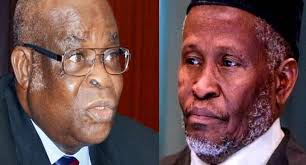

NJC Sets Up Panel To Probe Onnoghen, Acting CJN
-


Oshiomhole Pelted With Stones, As Security Men Shield Buhari At Ogun Rally
-
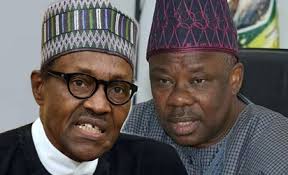

Amosun Campaigns For Both APC And APM At Buhari’s Campaign Rally
-


Buhari Expresses Hope In Resolving Zamfara APC Crisis
Opinion
IHATCH: JAPAN GOVERNMENT TASK TO LEVERAGE NIGERIA’S YOUTHFUL POPULATION- DG NITDA
Published
5 months agoon
December 3, 2023
By James Ishaku
As part of the current administration of President Bola Tinubu’s commitment towards creating meaningful opportunities for Nigerian youths, the Director General Of the National Information Technology Development Agency (NITDA), Kashifu Inuwa CCIE has called on the government of Japan to leverage on the youthful population through strategic talent partnership that will nurture and build a workforce that can be exported.
The DG made the call at the Ihatch startup incubation programme 2nd cohort demo day and 3rd cohort opening ceremony organised by the subsidiary of the agency, Office for Nigerian Digital Innovation (ONDI), in partnership with Japan International Corporation Agency (JICA) in Abuja.
Inuwa noted that the ihatch 5-month free intensive incubation programme executed by the ONDI and hosted within the National Centre for Artificial Intelligence and Robotics (NCAIR) is designed to help Nigerian tech entrepreneurs refine their business ideas through a series of coaching, lectures, and booth camps to develop scalable and adaptable business models that willfocus on youth, innovation, entrepreneurship, and technology.
He added that the incubation programme will be held simultaneously in Abuja, Lagos, Port Harcourt, Gombe, and Kano and JICA has agreed to extend the Fourth Cohort across each of the 36 States and the FCT. This is to enable wider reach and to stimulate the startup ecosystems across the States.
The DG stated that not fewer than 1,218 applications were received for the Second Cohort and the number was pruned down to 8 startups, comprising 16 persons, a Founder and Co-Founder for each startup, after undergoing levels of rigorous selection process conducted by a panel of judges, comprising experts in diverse areas of technology and innovative entrepreneurship.
He explained that the selection process assessed the startups’ ideas based on the criteria of profitability, scalability, social impact, idea technique, competitive advantage, experience, and a clearly defined future roadmap.
Inuwa further revealed that a total of 11,183 applications were received from across the 6 geopolitical zones for the Third Cohort. This culminated in the selection of the top 8 startups, comprising 16 founders in total that will participate in the Third Cohort that was launched.
He added that 16 startups that participated in the first and second cohorts of the iHatch incubation programme have moved on to achieve remarkable success in the areas of job creation, funding, participation in events, and valuable partnerships which have created a combined total of 179 direct jobs in the span of agriculture, health, education, and e-commerce sectors.
The DG further asserted that apart from the total grant of US$45,000 (US$15,000 each) for Proof of Concept (POC) to the top 3 startups in the first cohort, some of the startups have raised some funding through other sources. Xolani Health (a health tech startup from the first cohort) secured a grant worth US$155,000, BetaLife (a health tech startup from the first cohort) secured an angel investment of US$60,000, Gifty (an e-commerce startup from the second cohort) got a grant of USD$8,000 while two other startups from the first and second cohorts respectively, raised a combined total grant of US$6,000.
Inuwa affirmed the agency’s commitment to working with relevant stakeholders and partners towards the successful implementation of the Nigeria Startup Act (NSA) which will accelerate innovation and provide much-needed jobs for our teeming youths. Leaving nothing to chance in our resolve to nurture the entrepreneurial spirit in our youth to catalyze the Nigerian digital economy to the next level.
The Honourable Minister, Federal Ministry of Industry, Trade and Investment, Doris Nkiruka Uzoka-Anite, represented by National Coordinator, National Talent Export Programme, Dr Femi Adeluyi, applauded NITDA for the various initiatives and programs put in place for the advancement of the tech ecosystem in the country.
Anite noted that the NITDA DG at the Digital Nigeria International Conference 2023 edition harped on the need for Nigeria to become the talent destination of the world where countries will come to seek a workforce that will work with them towards achieving their goals and objectives.
She added that “technology is a pivotal tool in all aspects of life which cannot be overemphasized and the green transition scoreboard global total has reached about $7.13 trillion for export and about $6.6 trillion for importation, the important aspect is that 54% of these activities is digitally edible and prepares people to be effective and efficient in the different sector of the economy is laudable”.
The Minister also appreciated JICA for its relentless efforts toward the advancement of the tech ecosystem in the area of automobile, development, training, scholarships, interventions and a lot more which has impacted the citizens directly or indirectly.
The Ambassador of Japan to Nigeria, Matsunaga Kazuyoshi, represented by Yuzurio Susumu Chief of Nigeria Office in his remarks stated that Nigeria is the most popular country in Africa and the heart hub of entrepreneurship activities aimed towards the advancement of the country.
He added, “With all the challenges faced by insecurity, and limited infrastructures in the country, Nigerian startups are demonstrating remarkable creativity and resilience in developing solutions that other critical social issues in areas such as education, transportation, healthcare and finance”.
He added that the present administration has identified the transformation potential of startups and digitization making it a key factor in diversifying the Nigerian economy from its dependence on oil.
The Ambassador pointed out that startups are seen as a catalyst for business transformation, bringing fresh ideas, innovative technologies and new employment opportunities. Japan has the longest history of technological innovation and entrepreneurship has a significant role in supporting the Nigerian system.
Among those who attended were representatives from both the private and public and the top three (3) startups emerged with cash prices to Fundus AI 1st postion $15,000.00, Reno 2nd postion with $12,000.00 and Ilim Tutors 3rd postion $10,000.00 respectively.
Coker – Odusote: 100 Days at the Helm of NIMC
By Walter Duru, Ph.D
It was Albert Einstein that once said that “setting an example is not the main means of influencing another, it is the only means.” That sentiment expressed by Einstein is the primary essence behind the theory of transformational leadership, which requires passion, charisma, and the ability to motivate others. Transformational leaders are usually very authentic, emotionally intelligent, great listeners, results-focused, visionary, and self-aware.
In just 100 days at the helm of the National Identity Management Commission (NIMC), Engr. Abisoye Coker-Odusote has ushered in a new era of transformational leadership, leaving an indelible mark on the organization. Her eventual confirmation as substantive Director General/Chief Executive Officer of the Commission did not come to many as a surprise.
She did not waste time to hit the ground running and showed commitment to advancing the NIMC’s mission and mandate.
Coker-Odusote has taken steps to streamline National Identity Number (NIN) registration processes, while addressing the long-standing challenges associated with identity registration in Nigeria. This, she is handling through strategic restructuring and the integration of advanced technologies with a view to significantly reduce waiting time and enhance the overall efficiency of the system.
Today, date of birth and other kinds of modifications at NIMC happen within 48 hours. The several years backlog of date of birth modifications she inherited are almost cleared, as she had given a one-month deadline for the same to relevant staff of the Commission.
Again, responses to issues and complaints, such as those whose National Identity Numbers did not hit the NIN Verification Portal are now resolved within 24 hours.
Recognizing the paramount importance of data security in the digital age, the NIMC CEO has taken steps to enhance data security by introducing robust measures to fortify the protection of citizens’ sensitive information. This includes, but not limited to the adoption of cutting-edge encryption technologies and the establishment of a dedicated cybersecurity team.
Her interest in improving service delivery at NIMC cannot be overemphasized. She has concluded plans to ensure regular training and retraining for staff of the Commission, emphasizing customer-centric approaches, to ensure a more positive experience for citizens seeking identity services.
On partnerships, Coker-Odusote, leveraging her extensive network and expertise, has forged strategic partnerships with governmental agencies, private organizations, and international bodies. These collaborations aim to enhance the NIMC’s capacity, foster innovation, and promote information sharing for the betterment of identity management.
Understanding the pivotal role of technology in modernizing identity management, Engr. Coker-Odusote has spearheaded the integration of biometric advancements and artificial intelligence into the registration and verification processes.
This not only improves accuracy, user experience and ease of enrolment, but also positions NIMC at the forefront of technological innovation in identity management. A typical example is the NIMC Contactless Biometric Solution, which delivers a best-in-class fingerprint and facial capture image output quality, powered by Artificial Intelligence. The new solution was unveiled by the commission at the 2023 Identity Day, held in Abuja on September 16, 2023.
In addition, Engr. Coker-Odusote tackled the existing backlog of unprocessed identity requests head-on. Through a combination of strategic staff deployment and redeployment, process optimization, and digitization initiatives, she has made significant strides in clearing the backlog, demonstrating her commitment to prompt and efficient service delivery.
Recognizing the crucial role played by the NIMC staff in achieving organizational goals, the CEO has developed for implementation, a robust welfare programme aimed at boosting morale and fostering a positive work environment. This includes, but not limited to training opportunities, health benefits, and performance recognition initiatives.
Furthermore, in consultation with in-house experts, elaborate public awareness campaigns are being planned, to ensure that citizens are well-informed about the importance and benefits of identity registration. These campaigns are expected to not only educate the public, but also serve to demystify the registration process, encouraging greater participation.
The NIMC DG has concluded plans to take the ecosystem enrolment forward by taking steps to deepen collaboration with ecosystem implementing partners, supporting to ensure the success and optimal performance of the Nigeria Digital Identification for Development (ID4D) Project, a Nigerian Project jointly funded by The World Bank, The European Investment Bank, and the French Development Agency.
Engr. Coker-Odusote’s strategic vision, commitment to efficiency, and emphasis on technological innovation positions NIMC for a future where identity management is not only secure but also seamlessly integrated into the daily lives of citizens.
On anti-corruption, the NIMC DG has left no one in doubt on her determination to sanitize the system, entrench a culture of transparency and zero tolerance for corruption. Apart from putting systems and structures in place to discourage graft, she is directly involved in ensuring that the cankerworm has no place in the commission.
Just recently, in what one may describe as a sting operation, she paid an unscheduled visit to the Federal Capital Territory office of the commission, where she is reported to have arrested some staff for allegedly extorting money from Nigerians, even as she has maintained that enrolment was free.
Her devotion to supporting the policy direction of the present administration by strengthening the issuance of the NIN for access to service is not in doubt.
Speaking on Coker-Odusote’s first 100 days in office as NIMC CEO, Project Coordinator, Nigeria Digital ID4D Project, Musa Odole Solomon described her as a vibrant, results-focused leader, determined to make a difference in the Commission.
“She has taken steps to build bridges of collaboration between NIMC and partners within the country’s identity ecosystem. These collaborations aim to enhance the NIMC’s capacity, foster innovation, and promote information sharing for the betterment of identity management in Nigeria.”
“The collaboration is also focused on enhancing handshake with institutions involved in the country’s identity ecosystem, with a view to deepening integration with the country’s Identity Management System.”
“In 100 days, she has taken the lead in working with the Nigeria Digital ID4D Project to speed up project implementation process, especially, processes geared towards the extension of NIN enrolment to hard-to-reach areas, women, persons with disabilities, and marginalized groups, thereby fostering inclusion and access to social services.”
“She has introduced some innovations that I consider very progressive, and things are moving very well. The Nigeria Digital ID4D Project is happy to work with her, as she has shown that she has all it takes to assist us succeed.”
Responding to a question on his impression about the NIMC DG’s leadership style and the future of the relationship between NIMC and his organisation, Chairman, National Population Commission (NPC), Hon. Nasir Isa Kwarra stressed that the relationship between NIMC and NPC has become more robust under Coker-Odusote’s leadership as NIMC CEO.
“I want to say that the National Population Commission has a long and robust collaborative partnership with the National Identity Management Commission (NIMC) in our efforts to harmonize and integrate biometric databases for planning and development of our country.”
“However, this partnership has become more dynamic and robust with the assumption into office of Engr. Abisoye Coker-Odusote as the Director General of NIMC. She has shown an unparalleled commitment and passion in working with the Commission, not only in registration of births and deaths, but also the upcoming population census. She comes across as a thoroughbred professional and innovator who will give Africa’s greatest nation a deserved identity profile for national unity, security, and development. I am more confident in the future of the Identity Management Commission under her.”
Responding to a question on the new grounds covered at the NIMC ICT, Director, IT/Identity Database of the Commission, Chuks Onyepunuka has this to say:
“Our DG is pragmatic, proactive, result-oriented and visionist. Her achievements in ICT in NIMC in the last 100 days include, but not limited to: “launching of self-modification and enrolments services to ease and simplify the processes for enrolment services; driving the clearing of about 3 million backlog of enrolment records awaiting manual adjudication within 3 weeks; decentralization of operations with objectives of ensuring that we are closer to the enrolees and adequate coverage in the nooks and crannies of the country.”
“Others are improvement in the process of engaging and revalidating our Frontend Enrolment Partners (FEPs); improvement in our ICT policies, processes and procedures; resolution of 95% challenges/issues affecting our window enrolment software (Res-Web) and commenced the integration and harmonization with National Population Commission, Nigeria Immigration Service and Federal Inland Revenue Service (FIRS).”
Adding her voice, NIMC’s Director, Business Development and Commercial Services, Mrs. Carolyn Folami described the DG as a thoroughbred professional, committed to resetting the Commission for the good of the nation.
“It has been only 100 days, but it seems she has been here far longer, as within this period, we have achieved a couple of goals towards resetting the NIMC agenda and resettling the NIMC staff for productivity.”
“Starting with the planning and commencement of training of all staff, to the commitment to all Front-End Partners (FEP) to revalidate the business model for fair play and payment. She is very keen on stakeholder engagement and has secured the buy- in of our harmonisation partners for effectiveness. She is professional, thorough, dedicated, and above all, kind to all.
Adding his voice, Monitoring and Evaluation Specialist, Project Implementation Unit, Nigeria Digital ID4D Project, Dr. Emmanuel Akogun argued that Coker-Odusote’s first 100 days in office were characterised by “dynamic, focused and results – oriented leadership,” adding that there is steady progress in NIN enrolment, with “103,500,000 Nigerians and other legal residents captured in the NIMC Database.”
There is therefore no gainsaying the fact that Engr. Abisoye Coker-Odusote’s first 100 days as CEO of the NIMC have been marked by a series of commendable achievements.
At this point, one can confidently say that with Engr. Bisoye Coker-Odusote as Chief Executive Officer, NIMC is in safe hands.
Her recent confirmation as substantive Director General/CEO of the Commission is clearly an act of patriotism by the Nigerian President, Bola Ahmed Tinubu.
However, as she commences a full tenure of office, following her recent confirmation, one expects that the standard is not lowered.
As she marks 100 days in office this week, the most challenging part of Abisoye Coker-Odusote’s journey as Chief Executive Officer of the NIMC is the need to sustain the successes recorded, remain focused, deepen stakeholder engagement and public enlightenment, check corruption, strengthen systems and structures, be fair to all, while supporting the policy direction of the present administration.
Deliberate steps must be taken to ensure the sustenance of the war against extortion at NIMC.
Again, a deliberate plan should be in place to ensure a more robust stakeholder collaboration, particularly with those involved in the country’s identity ecosystem.
Elaborate, sustained communication and public enlightenment activities are required, taking advantage of the conventional and unconventional channels of communication to inform, educate and mobilize the citizens on the need for all to register for the NIN. This requires a deliberate strategy and strategic implementation.
Finally, a deliberate inclusion strategy must be in place and vigorously implemented to ensure that no one is left behind.
As the DG continues to lead with passion and purpose, NIMC is poised for even greater accomplishments under her guidance.
Indeed, NIMC is in safe hands!
Dr. Walter Duru (Assistant Professor of Communication and Multimedia Design) is a Communication/Public Relations Strategist, Researcher and Consultant. He could be reached on walterchike@gmail.com
Opinion
Telecoms: Operators seek strict harmonised RoW charges
Published
5 months agoon
November 25, 2023AJAGBE ADEYEMI TESLIM
SPONSORED BY: H&H
Telecom operators have urged the federal government to make a policy that will make the charges on the Right of Way (RoW) uniform across the country.
According to them, the issue of RoW has been a major challenge hindering the deployment of telecom infrastructure while the infrastructure is vandalised in some areas.
Right of Way charge is a levy paid by telecommunication companies to state governments, permitting telecommunication companies to dig up the roads and install telecommunications hardware such as optic fibre cables that carry internet traffic.
The Right of Way charge has been fraught with inconsistencies across the states in terms of charges and has negatively impacted broadband infrastructure.
To harmonize the Right of Way charges for broadband infrastructure investment, the Federal Government, in 2017, through the National Executive Council (NEC), approved a policy, which resulted in a RoW Charge Agreement reached with all the governors of the 36 states of Nigeria.
However, the RoW Charge Agreement is yet to be fully adopted by the 36 States, and in recognition of the slow uptake by the States, the former Minister of Communication and Digital Economy, Isa Pantami, on January 14 2020 in a press statement called on states to implement the harmonization of the RoW charges for obvious benefits for the sector such as deepening development/growth in broadband infrastructure, and reducing the transfer of RoW charges costs by telecommunications companies to customers.
January 2020 recorded a step in the right direction when the Nigerian Governors Forum accordingly resolved that telecommunication operators were to pay N145 (approximately $0.37) per linear metre to lay fibre cable anywhere in the country.
Meanwhile, despite these, the telecom operators have continually complained about the different charges leveled by different states for the Right of Way.
According to them, the issue of the RoW has been worrisome affecting the laying of telecom infrastructure in some states in the country.
They said this has also been the bane of telecom services in some areas, especially in the cities where people do not enjoy the services.
The operators noted that if there is harmonisation and every state in the country abides by the rule, telecom services will be everywhere across the country.
“If such policy is wrong and strict, there will be unification in the charges for the Right of Way by all the states. And even the payment will be easy. And to make the policy strong, the Federal Government must declare telecom infrastructure as national infrastructure.
Once it becomes a national infrastructure, you don’t need to talk about being paid or not being paid.
All that the telco company needs to do is to pass through the agency that is in charge. You write the agency and get your cables laid.
Except the Right of Way affects someone’s building, which is very difficult. If it affects someone’s building, that is a different thing, but if it does not, what you just need is to get approval from the agency in charge. If this is achieved, the broadband penetration we are talking about will be easily expanded,” telco operators said.
Trending
-

 News5 years ago
News5 years agoBreaking: ‘Penalty’ Crooner Small Doctor Caught in Possession of Fire Arms
-

 News5 years ago
News5 years agoTiffany Trump Is Dating a Millionaire Michael Boulos From Nigeria
-

 News5 years ago
News5 years agoPDP Set To Cause Panic Days To Polls: FG
-

 News5 years ago
News5 years agoINEC Engages EFCC, FIU In Tracking Campaign Funding
-
News2 years ago
INEC Publish Final List of Candidates For 2022 Osun Governorship Poll
-

 Politics5 years ago
Politics5 years agoPDP Alleges Plot by APC, Presidency to Detain Its Leaders
-

 Politics5 years ago
Politics5 years agoOsinbajo Has Betrayed Yorubas, Says Afenifere
-

 Politics5 years ago
Politics5 years agoLagos Commissioner Decamps To PDP






